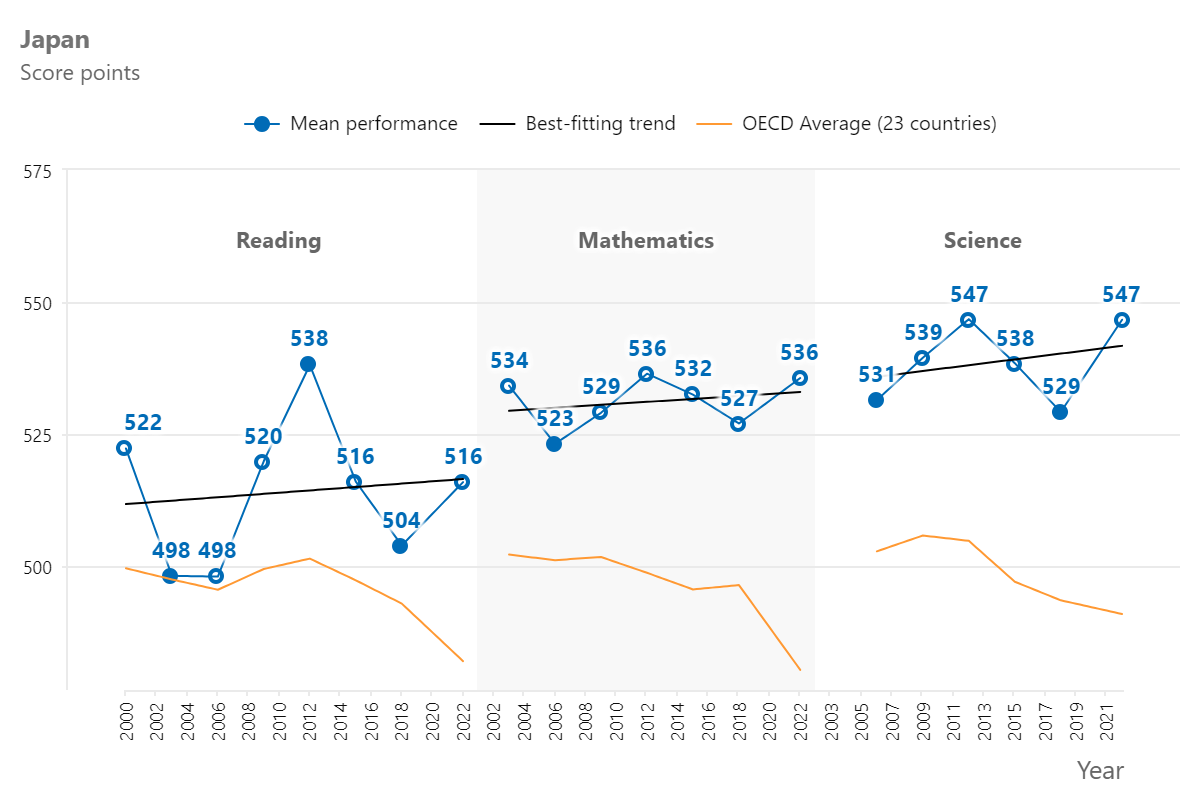International test results released last month put a spotlight on the global decline in student achievement caused by the Covid-19 pandemic and school closures.
But the results from the Program for International Student Assessment, known as PISA, also shined a light on a less-discussed factor that shapes how students perform in school: parent involvement.
The tests also include surveys of educators in most of the world’s industrialized democratic countries. The U.S. was among the countries where these surveys found a marked decline in communication between parents and schools about student achievement between the last PISA administration, in 2018, and the post-pandemic round of testing.
PISA data collected from school principals show that the percentage of parents who were involved in school and learning decreased substantially between 2018 and 2022 in many countries/economies. This was also the case in the United States. In 2022, 31% of students in the United States were in schools whose principal reported that during the previous academic year at least half of all families discussed their child’s progress with a teacher on their own initiative (and 45% on the teacher’s initiative). In 2018, the corresponding number was 43% (and 53%).
America’s decline wasn’t as dramatic as the decline in some other countries. The drop in parent-teacher conversations about student achievement was even larger in the U.K., for example.
There are clearly some cultural differences that shape how these conversations take place. In Japan, for example, it’s apparently far more common than in English-speaking countries for teachers, rather than parents, to initiate conversations about student achievement. But principals were more likely to report that these conversations took place. And, crucially, they did not report a decline in these conversations in the wake of the pandemic.
Perhaps it’s no coincidence Japanese students improved their scores in reading, math and science at a time when their counterparts in most of the rest of the world moved in the opposite direction.

Our country’s declines in student achievement, and the general lack of concern about them among parents, has gotten plenty of attention from advocates and researchers, including, recently, a team at the University of Southern California. Their latest report shows parents often rely on information sources, like grades, that don’t give them an objective picture of student learning. Parents also tend to think the negative tends they read or hear about apply to other people’s children, not their own. Some representative sentiments include:
“Everything is fine. She’s on track socially, academically. It’s kind of like way in the past. I don’t see any … residual effects of it.” Some respondents specifically praised the efforts of their local schools, expressing no concerns because “teachers (went) above and beyond to be sure all students were grasping material and had individualized attention… Students really benefitted.” Another caretaker noted “the school is pretty lenient with us as parents asking for help academically for our children. They do try and either offer after-school or the interventions for after-school as well.”
Someone needs to level with parents about how their students are doing and what they can do to help improve their learning. Most of the systems designed to measure student performance are designed to meet the needs of researchers and policymakers. We need to build better systems designed to inform parents.


